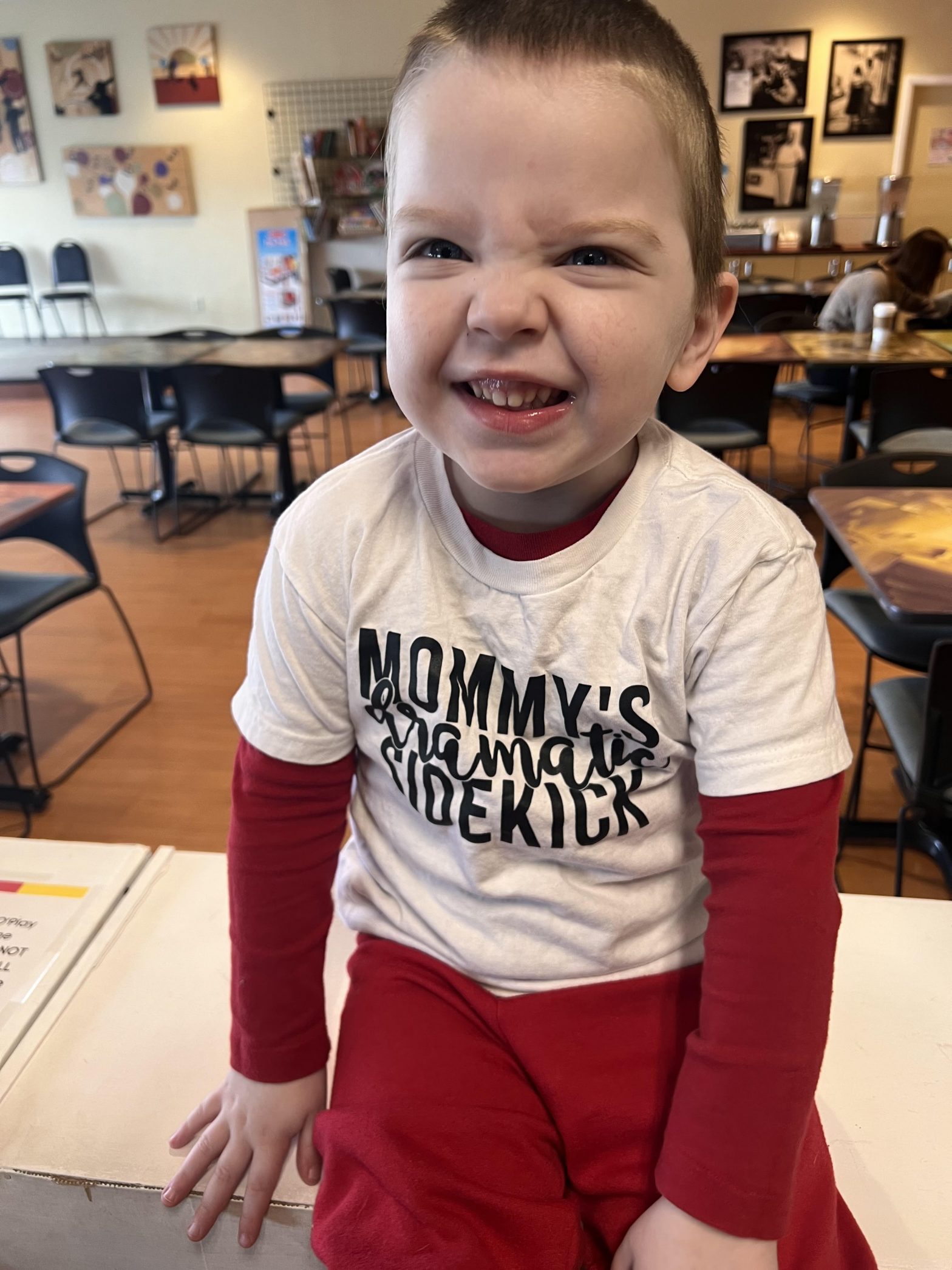The story of Elliott
Elliott was born prematurely at 34 weeks, 2 days due to mom’s preeclampsia. He spent 23 days in the NICU where we learned that he had tested positive for PKU on his newborn screen. Throughout his stay, we had several blood tests done to check his phenylalanine levels and confirm the diagnosis. We were not given a lot of information and were very nervous about this diagnosis and not knowing what it meant for our sweet boy. We had a follow-up with genetics when he was finally discharged and were told he had a mild case of PKU and didn’t need medications or a specialty formula. At that time, we had done a genetic test for the mutations that cause PKU. Several months later, we found out that they had only discovered one mutation on that specific gene. We were told that could mean that he has it and the other was undetectable (which happens) or it could mean that he has a more rare condition that only accounts for 2% of cases, but would require a more thorough genetic testing. We opted to do the other testing to be sure. We then found out he had two mutations of “uncertain significance” on his DNAJC12 gene. To confirm, mom and dad took a genetic test and discovered we each carried one of the mutations. We also found out his older brother is a carrier as well. At that time, we did a BH4 loading test by testing his phenylalanine levels before and then 3 hours after taking the BH4 (Kuvan) medication to see what his response was. Patients with PKU respond well, but patients with the other rare reasons for hyperphenylanemia respond exceedingly well. He was one that responded exceedingly well. This meant that he would continue to respond well to medication and it was started at that time. We also were sent to neurology for an evaluation. Patients with Elliott’s condition have low levels of serotonin and dopamine in their cerebral spinal fluid, so we scheduled an MRI and a lumbar puncture shortly before he turned one to confirm diagnosis. It was shown that his levels of both were low and he was started on two medications that are said to keep these in the right amounts. Though we know very little about the implications of his diagnosis, we do know early intervention can help tremendously and so we started him with everything available to us. He is currently 3 years old and doing well. He is still delayed and requires therapies in speech and occupational therapy, as well as having an autism diagnosis. We are uncertain what the future holds and how his development will look, but we are happy with the progress he had made and the help of the specialists that have followed him most of his life.
